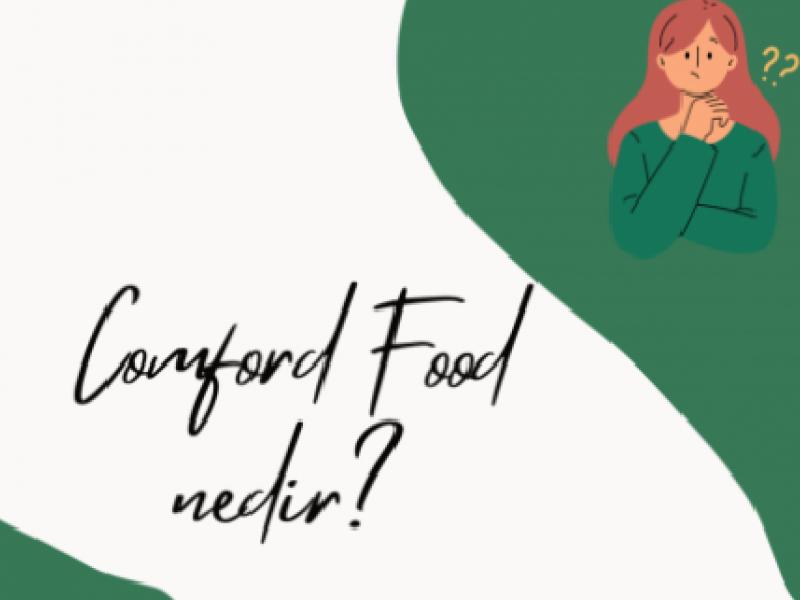“I don’t know what you think about eating. “Breakfast must have something to do with happiness,” said Cemal Süreya.
Food and emotions are, of course, related. Mood changes are a part of our lives and at the same time the colors…
So what does “comford food” mean?
“Comford food,” meaning stress-reducing food, is a type of response to emotional stress experienced while reinforcing positive emotions.
Spooned puddings, quickly opened chocolate packages… Did it appear as a faint memory in the past or is it still in front of you with all its clarity? 🙂
Yes! Although these foods vary according to cultures, they are generally easy to prepare and mostly high in simple carbohydrates. We hug, believing that it makes us happy, even for a short time.
So how helpful are these “stress-reducing” foods really?
Or does it lead to a vicious circle?
According to research, these foods that contain high levels of refined carbohydrates and sugar can, on the contrary, worsen the stress response, causing rapid rises and falls in blood glucose levels, causing similar fluctuations in adrenaline or epinephrine, which is often called the ‘stress hormone’. I emphasize that it can cause such situations when consumed in “high amounts”. Because in sustainable diets, there is no prohibition, there is quantity control. 🙂
As a result, let’s look at the apples and pears we have: We ate to be happy, even we believed that it made us happy, but with the rapid drops in blood glucose levels, we caused fluctuations in adrenaline and epinephrine and we became more stressed… We ate more, we believed again, but it resulted in stress again … This is how you create a vicious circle.
So what is the most important question to ask here?
a) Why don’t you listen to your intuition?
b) Why do you make yourself feel worthless with processed foods that will threaten your mental and physical health?
c) Why don’t you learn proper nutrition with the support of an expert, but tie another knot in this knot?
None of these questions is the most important question to ask yourself.
By deciding to take action, change begins.
So the most important question to ask is:
“I’m ready for change. When do we start?”
*Jacquelyn H. Flaskerud (2015) Mood and Food, Issues in Mental Health Nursing, 36:4
*White BA, Horwath CC, Conner TS. Many apples a day keep the blues away – Daily experiences of negative and positive affect and food consumption in young adults. British Journal of Health Psychology 2013;18:782–98

